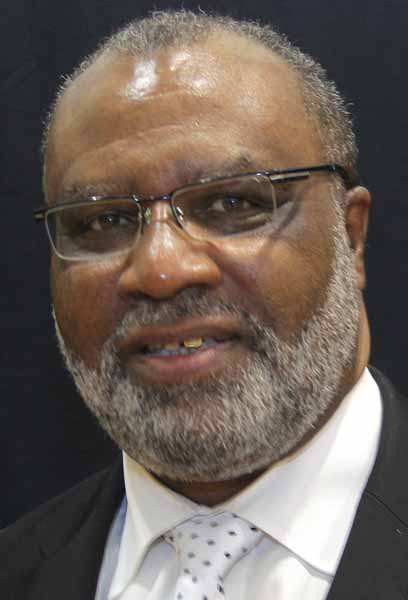
MESQUITE, Texas (BP) — A local newspaper interviewed me for a special feature several years ago, asking me, “Who is your favorite preacher of all times?”
Having studied church history, the names of George Whitefield and Jonathan Edwards immediately came to my mind. Choosing between the two was difficult because I appreciated the theatrical delivery styles of both theologians whereby every word held a convicting punch that compelled the unchurched to find Jesus. For the newspaper article, Whitefield made the top of my list for favorite preacher of all times.
Whitefield and Edwards, without doubt, are two of the most noted theologians in history. But it would take 25 years of formal Christian education before I would learn that these two preachers supported the enslavement of African American people.
Why is this a subject worth the time and effort for modern discussion when American laws no longer make slavery a legalized institution? I can propose two very important reasons: one secular and the other theological.
First, on the secular side, the subject of who owned slaves and how this is left out of history books should remain a subject for study. The confusion over racism in 2017 serves as an example of how the common history of whites and African Americans in this country typically has left out the historical contributions of black Americans. If American history would have honored the labor and contribution of slaves in the building of this country, it would have rewarded their descendants for the suffering endured by their ancestors, and the perception of slavery over the generations would have an entirely different outlook today.
In contrast, many in America have chosen to honor those who fought to keep African Americans enslaved by building statues in their honor and placing memorial inscriptions on the images such as “A Hero of the Confederacy.” These recognitions of praise are the problem, not the statues, especially when slavery and the Civil War are considered the darkest part of American history. America has historically praised its slaveholder heroes, and not the economic and moral contribution of its African American slaves. Among the real heroes are the forgotten slaves, a story that is omitted with every Confederate memorial.
America should commit to telling the whole truth at these statues. Tearing them down does not change a single event of our troubled history, but erecting statues of the unknown accomplishments of slaves at their side could help the healing. African Americans already consider each slave ancestor a hero, and America should honor these descendants for surviving the atrocities of slavery.
The divisiveness on our American streets today is the result of a history filled with erroneous teachings about the anthropological differences between races. Philosophical teachings designed to divide the races remain a blind spot in much of America, and only those committed to finding a solution will see through the racial problem.
Second, for Christians this is a subject worth the time and effort for discussion because the blind spots of racism also are evident in how Christian literature typically has avoided the subject in its exploration of theology. Many of the past and present racist movements in their development called themselves Christian organizations. These groups have claimed their interpretation of Scripture gives them the right to be considered Christian. While Whitefield and Edwards are two of the purest Christian thinkers in history, on the subject of slavery these spiritual giants justified their positions on Bible interpretation to keep African Americans enslaved.
Let’s be clear, the Bible does not directly condemn slavery as sinful, but, rather, the mistreatment of slaves. Slaveholders are commanded to follow the same spiritual principles of love and kindness as those given to slaves when serving the Lord. “Masters, do the same to them, and stop your threatening, knowing that he who is both their Master and yours is in heaven, and that there is no partiality with him,” the apostle Paul wrote in Ephesians 6:9 (ESV).
The slavery experienced by African Americans was not the same as many who were enslaved in biblical times. The Bible never defines slavery based on race hating, and never before in world history had slavery been determined by skin color. This is the nightmare in America today. We are required to live with a history of a physical, mental, abusive racial slavery — the likes of which only Christian love can heal.
An understanding of history has helped me realize that theologians during slavery were subject to the influences of their day. Although Whitefield and Edwards theologically impacted American Christianity in its infancy, they failed to condemn slavery as the evil it is. To their credit, they preached that slaves should be treated with respect urging slaveholders to stop their inhumane treatment.
The hate movements of our day that call themselves Christian have defamed the name of Christianity. If the hateful climate in America today is to be reversed, all true Christians must become intentional and take a stand to follow the words of our Savior: “You shall love the Lord your God with all your heart and with all your soul and with all your mind. This is the great and first commandment. And a second is like it: You shall love your neighbor as yourself. On these two commandments depend all the Law and the Prophets” (Matthew 22:37-40, ESV).

















